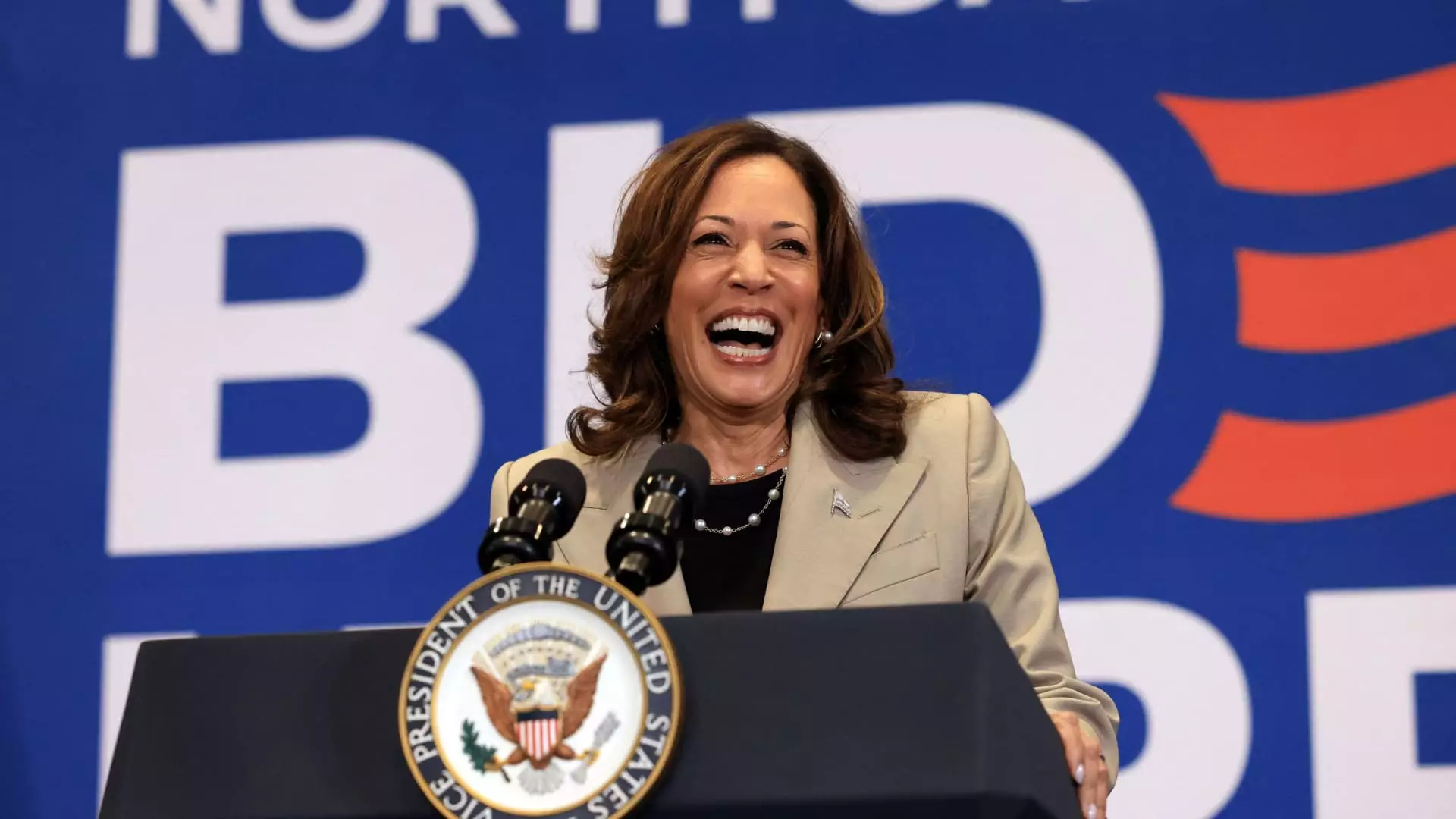Vice President Kamala Harris recently spoke in North Carolina, highlighting the nation’s domestic manufacturing resurgence under President Joe Biden. She emphasized the contrast between the loss of manufacturing jobs during Donald Trump’s presidency and the creation of nearly 800,000 new manufacturing jobs under the Biden administration. This message aims to showcase the positive economic impact of Democratic policies on American workers.
The intense media interest surrounding Harris’ campaign stop reflects her potential as the Democratic Party’s presidential nominee if Biden were to drop his reelection bid. Senate Majority Leader Chuck Schumer and former House Speaker Nancy Pelosi have reportedly expressed concerns about Biden’s electoral chances and urged him to step aside. This pressure underscores the internal dynamics within the Democratic Party regarding its leadership and future trajectory.
While Biden has rejected calls to drop out, his campaign has started to assess the viability of a Harris-led ticket. Polling data suggests a close race between Harris and former President Donald Trump, with both candidates within the margin of error. This strategic evaluation indicates a willingness to adapt to political realities and consider alternative scenarios for the upcoming election.
Harris critiqued Republican VP nominee JD Vance’s speech at the Republican National Convention, highlighting the lack of emphasis on specific policy plans. She characterized the Republican agenda as extreme and divisive, emphasizing the importance of unity in political discourse. By challenging the opposition’s policy proposals, Harris seeks to frame the Democratic Party as a champion of inclusivity and progress.
Harris also highlighted key achievements of the Biden administration, such as the insulin price cap, the expansion of the child tax credit, and student debt relief. These policy initiatives demonstrate a commitment to addressing pressing issues affecting American families. By showcasing tangible improvements in healthcare, social services, and education, Harris aims to build a narrative of progress and social responsibility under Democratic leadership.
Harris’ repeated visits to North Carolina, a battleground state, underscore the importance of securing key electoral victories in diverse regions. By engaging with local communities and collaborating with Democratic leaders like Governor Roy Cooper, Harris seeks to mobilize support and drive voter turnout. This targeted campaign strategy reflects the Democratic Party’s broader efforts to expand its electoral base and appeal to a wide range of voters.
Vice President Kamala Harris’ recent remarks on manufacturing, Democratic Party dynamics, and policy priorities offer insight into the evolving political landscape leading up to the upcoming election. By focusing on economic growth, internal party dynamics, strategic assessments, policy critiques, and grassroots engagement, Harris navigates complex political terrain with a mix of optimism, pragmatism, and resolve. As the political climate continues to shift, Harris’ leadership and message will play a crucial role in shaping the Democratic Party’s future and the direction of the nation as a whole.


Leave a Reply